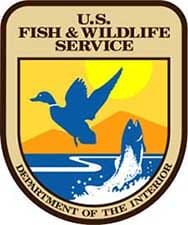

Washington, DC -(AmmoLand.com)- Native American leaders and U.S. Fish and Wildlife Service (Service) officials gathered on Wednesday; January 20th, to recognize new measures to strengthen the agency’s 20-year-old policy guiding government-to-government relations between tribes and the agency.
Service Director Dan Ashe signed the updated Native American Policy (NAP) during a Washington, D.C., ceremony attended by Principal Deputy Assistant Secretary for Fish and Wildlife and Parks Michael Bean and numerous tribal representatives. The Service manages lands and resources of great importance to tribes.
“To be good stewards of our planet and its remarkable natural history for future generations, we must work effectively across shared landscapes. We can only do that as a nation by working collaboratively with Native American Tribes,” said Ashe. “The Fish and Wildlife Service’s newly updated Native American Policy will foster and nurture relationships with Tribes and honor the mutual trust of guardianship we hold for decades to come.”
Sixteen tribes worked with Service representatives for more than two years to create the revised policy. Tribal representation on the NAP Team includes members from the: Cherokee Nation, Chugach Regional Resources Commission, Confederated Tribes of Grand Ronde, Eastern Band of Cherokee Indians, Fond du Lac Band of Lake Superior Chippewa, Gros Ventre and Assiniboine of Fort Belknap, Great Lakes Indian Fish and Wildlife Commission, Muckleshoot Indian Tribe, Native Village of Emmonak, Navajo Nation, Oglala Sioux Tribe, Penobscot Indian Nation, Quinault Indian Nation, San Manuel Band of Serrano Mission Indians, and Central Council of Tlingit and Haida Indian Tribes of Alaska.
“As tribal people, our relationship with the natural world goes back thousands of years. We’ve evolved with these resources and have an ingrained cultural, spiritual and ecological connection with them,” said John Banks, director of the Penobscot Nation’s Natural Resources Department and NAP Team member. “It was important for tribal people who work in the fish and wildlife arena to be involved in the development of this policy. This policy offers a great opportunity for tribes to improve on the partnership with the Service.”
The revised policy guides broader, more open and collaborative dialogue and working relations between the Service and federally recognized tribes and Native Alaskans. The updated policy is designed to sustain effective partnerships that are crucial to meeting the Service’s and tribes’ joint responsibilities as stewards of the nation’s natural and cultural resources.
The revised policy provides a consistent, yet flexible national framework that encourages efficient and creative ways to maximize tribal resource conservation through improved federal-tribal working relationships. It puts stronger emphasis on co-management and collaborative management of natural and cultural resources; places added emphasis on implementation and accountability; promotes building tribal capacity, the use of tribal knowledge in the Service’s decision-making, and greater Service and tribal training and education; and enhances collaborative Service-tribal law enforcement efforts where possible.
To view the final revised policy, visit the Service’s website at http://www.fws.gov/policy/510fw1.html.
About the U.S. Fish and Wildlife:
The mission of the U.S. Fish and Wildlife Service is working with others to conserve, protect, and enhance fish, wildlife, plants, and their habitats for the continuing benefit of the American people. We are both a leader and trusted partner in fish and wildlife conservation, known for our scientific excellence, stewardship of lands and natural resources, dedicated professionals, and commitment to public service. For more information on our work and the people who make it happen, visit www.fws.gov.
For more information on our work and the people who make it happen, visit http://www.fws.gov/. Connect with our Facebook page, follow our tweets, watch our YouTube Channel and download photos from our Flickr page.
